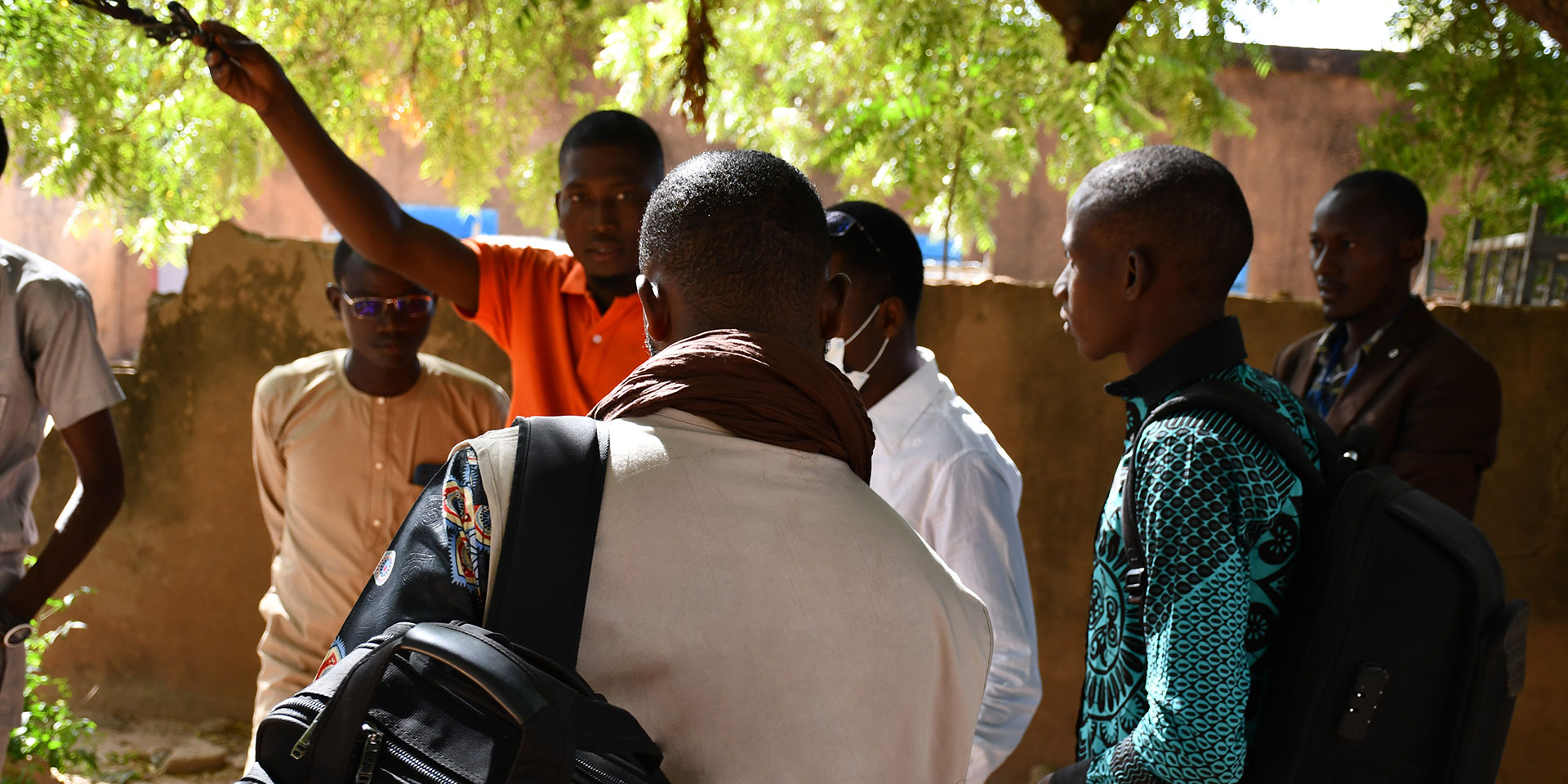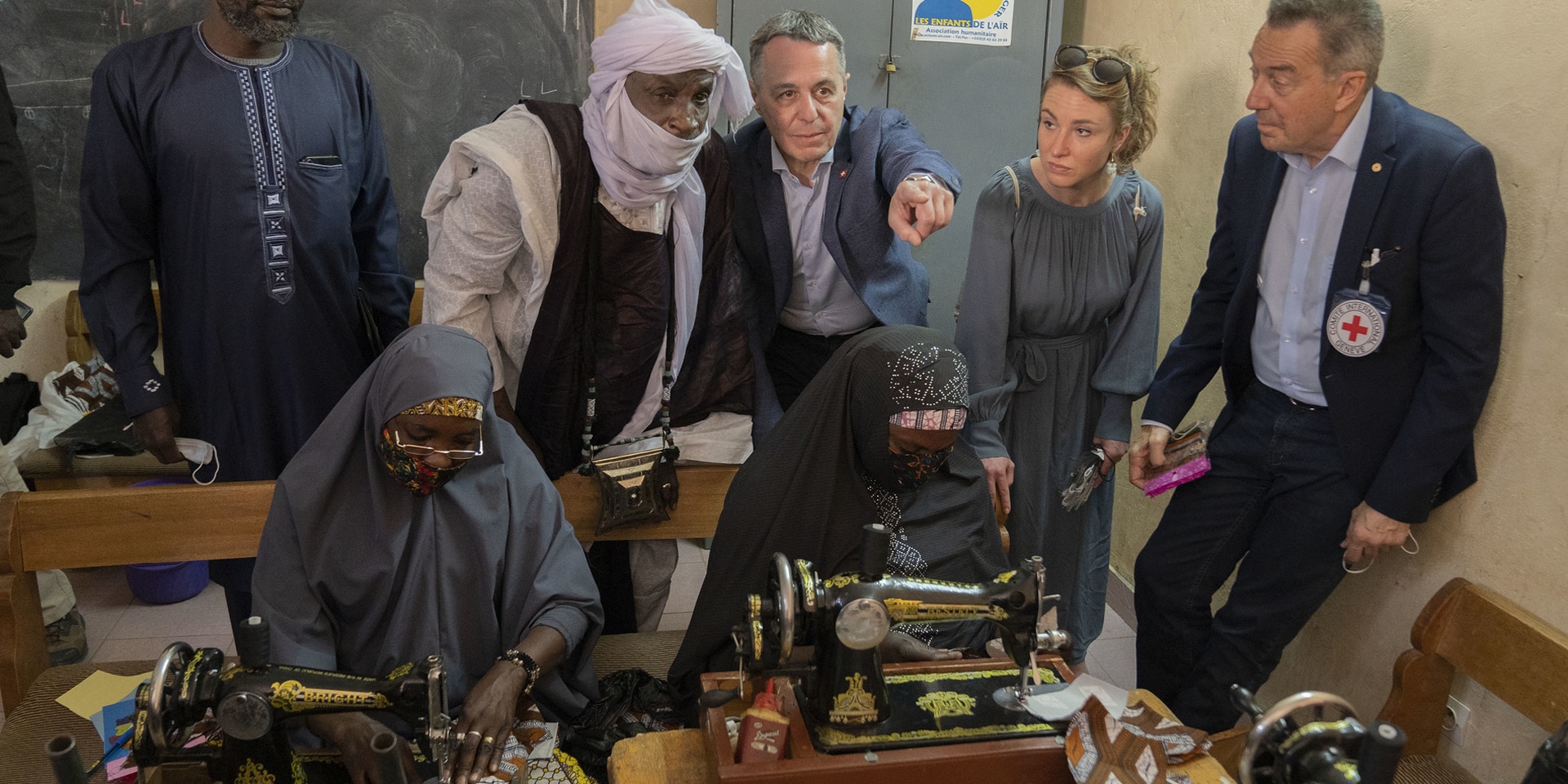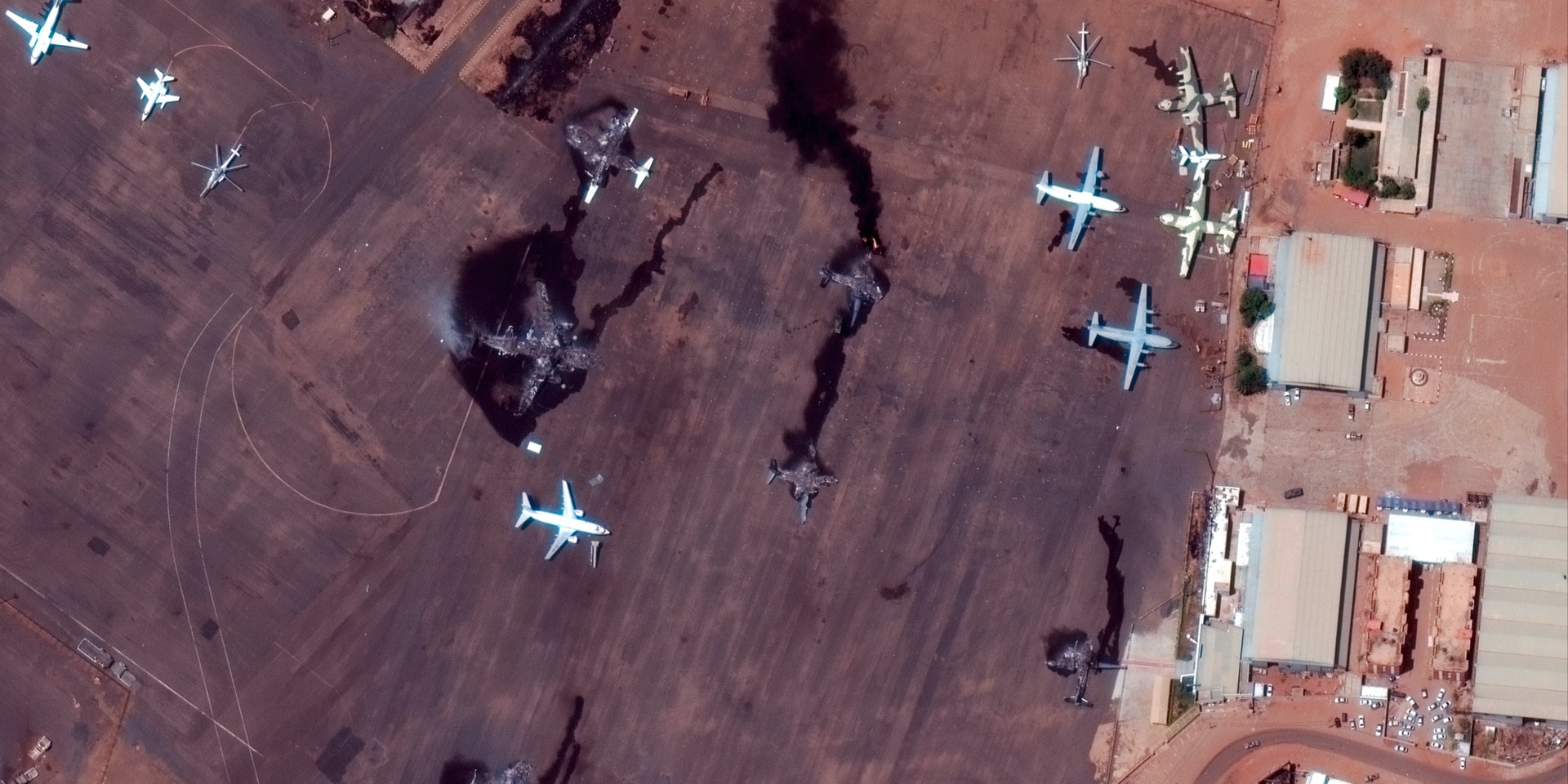The FDFA is closely monitoring the situation in Niger
Switzerland is concerned about the developments in Niger and condemns the seizure of power by the armed forces. It calls for dialogue, respect for human rights and the return to constitutional order. Due to the alarming developments the expatriate staff of the Cooperation Office of the Swiss Agency for Development and Cooperation (SDC) left Niger temporarily. As soon as the situation allows, they will return to Niger. Switzerland continues to support the people of Niger particularly through humanitarian aid. It is adapting its activities in the field of development cooperation, in line with the situation.

Switzerland is adapting its development cooperation activities in Niger to the current situation. © FDFA
The seizure of power by a part of the armed forces on 26 July brought to an end the relative political stability that had characterised Niger so far compared to other countries in the Sahel. Switzerland is calling for the release of President Mohamed Bazoum, who was democratically elected in 2021, and for a return to constitutional order. It also calls for dialogue, respect for human rights and the assurance of democracy and the rule of law. It expresses its support for the people of Niger and remains committed to peace and stability in the region.
The Federal Department of Foreign Affairs (FDFA) is closely monitoring the situation in Niger. Due to the current situation in the country, the SDC Cooperation Office’s expatriate staff left Niger on 10 August 2023. Three people were concerned, along with one accompanying person.
As of Thursday, 10 August, 19 Swiss nationals have left the country as far as the FDFA is aware. The FDFA remains in contact with the around 14 remaining Swiss nationals on site. It continues supporting them to the best of its abilities, if needed. Not all of these people want to systematically leave Niger. The decision to leave the country is made voluntarily and at the own risk and expense of the person travelling. The FDFA does not itself organise departures from Niger. Switzerland has been advising against travel to Niger and stays of any kind in the country since 2009.
For further assistance, Swiss citizens can contact the Swiss Embassy in Abuja or the FDFA Helpline.
The cooperation office’s local staff are fine and will continue their activities as far as possible. Switzerland remains committed to Niger, adapting its development cooperation activities to the situation and pursuing its humanitarian aid activities to the current situation. It will continue to support the people of Niger and continue its humanitarian aid activities.
Switzerland is present in Niger since 1978
The Sahel region, which includes Niger, is a priority area of Switzerland's Sub-Saharan Africa Strategy 2021-2024. It has been present in Niger since 1978 through an SDC cooperation office and supports the country's development efforts. It takes a broad approach by linking development cooperation, humanitarian aid and peacebuilding.
In the field of development cooperation, which means long-term support for the country, the SDC focuses on three priority areas of action: food security and local development, basic education and vocational skills development, as well as local governance and the protection of vulnerable people. The SDC programmes primarily focus on Dosso and Maradi in the south of the country, with extensions to Tillaberi, Zinder and Diffa. The SDC's main interlocutors are the decentralised authorities.Food security is also central to Switzerland’s humanitarian aid in Niger. It supports multilateral partners such as the ICRC, the World Food Programme and NGOs to help people who are victims of conflict and violence and at risk of food crises. For example, in Diffa and Maradi the SDC supports a programme that helps pastoralists and farmers to increase their resilience to security and health problems as well as climate change.
Niger suffers from recurrent food insecurity, mainly due to conjunctural and structural problems. About 80% of the population live in rural areas and more than 45% below the poverty line.


